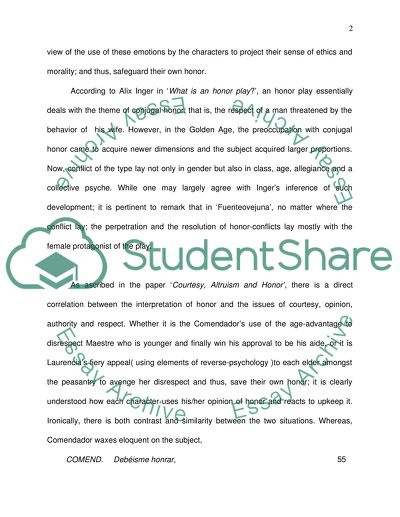Cite this document
(“The Honor of Fuente Ovenjuna Essay Example | Topics and Well Written Essays - 1500 words”, n.d.)
Retrieved from https://studentshare.org/miscellaneous/1566192-the-honor-of-fuente-ovenjuna
Retrieved from https://studentshare.org/miscellaneous/1566192-the-honor-of-fuente-ovenjuna
(The Honor of Fuente Ovenjuna Essay Example | Topics and Well Written Essays - 1500 Words)
https://studentshare.org/miscellaneous/1566192-the-honor-of-fuente-ovenjuna.
https://studentshare.org/miscellaneous/1566192-the-honor-of-fuente-ovenjuna.
“The Honor of Fuente Ovenjuna Essay Example | Topics and Well Written Essays - 1500 Words”, n.d. https://studentshare.org/miscellaneous/1566192-the-honor-of-fuente-ovenjuna.


